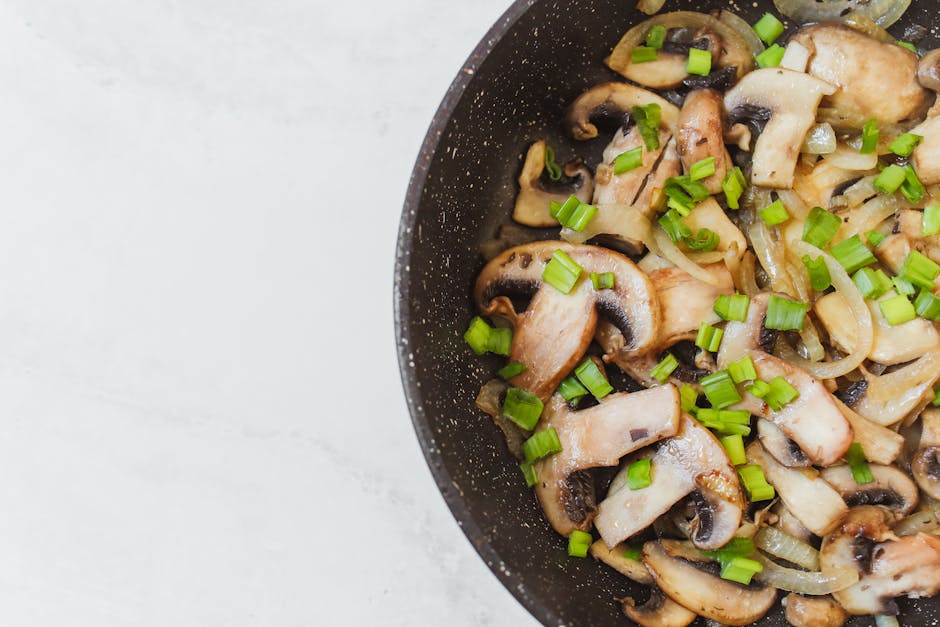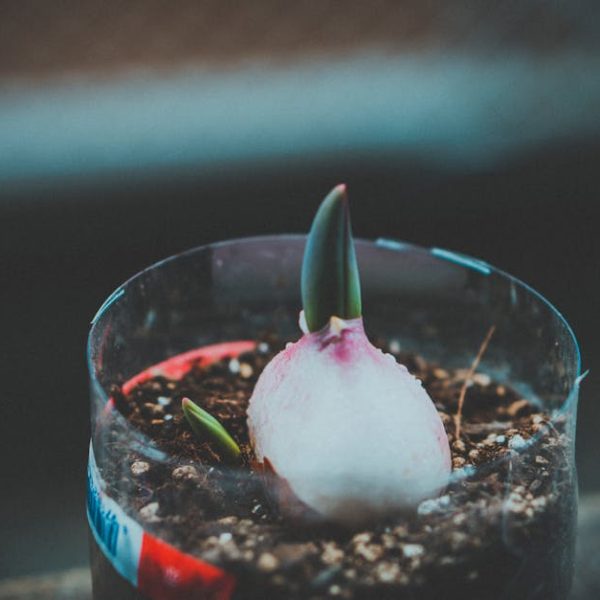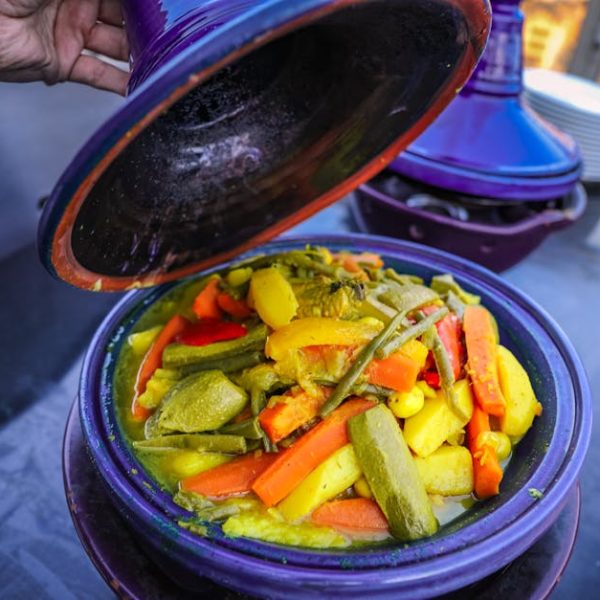Can you freeze onions? Turns out you can! Not only is this an ideal solution for preserving any surplus onions, particularly if you’ve taken advantage of a bulk buying opportunity or have been blessed with a bumper garden harvest, but having a stash of pre-prepared onions ready to go can also be a real time-saver when cooking. Plus, let’s not forget the financial savings one can accrue when reducing waste and spoilage. Not to mention the convenience of these ready-to-use, pre-chopped cooking ingredients.
The key to freezing onions correctly lies in the detailed step-by-step process, from preparation to proper storage. The onions should be carefully selected for freshness, thoroughly cleaned, and then diligently chopped. There’s an ongoing debate about whether to blanch the onions or not before freezing – this being an optional step depending on your individual preference. If you choose the blanching route, this requires quickly immersing the onions into boiling water, then subsequently ice water before continuing. Following this, the onions should be quick-frozen by spreading them in a single layer on a baking sheet before finally storing them in freezer-safe bags or containers. It might seem like a lot, but each stage plays a crucial role in maintaining the quality and punishing of the onions, ensuring their flavor and texture stay intact during their freezer tenure.
Despite all these facts, misunderstandings about freezing onions are abundant. The most common apprehensions are loss of flavor, changes in texture, or a reduction in nutritional value. While it’s true the texture of an onion changes after freezing, becoming softer, rest assured that its taste and nutritional content stay unblemished. Also, concerns about odiferous onions dominating your freezer can be easily quashed by using airtight containers or double-bagging.
Nature has blessed us with an assortment of onion types, from red to white or yellow, and even pearl onions and shallots. Each variant brings a unique taste profile, but when it comes to freezing, they all pass muster. It’s worth mentioning that milder and sweeter onions tend to handle the freezing process better than their pungent counterparts. Pearl onions and shallots, due to their small sizes, are inherently better-suited for freezing.
Once you have this frozen treasure at hand, you’ll find a myriad of ways it can be used in cooking. Best part? In most scenarios, you can directly pop frozen onions into your dish, without needing to thaw them first. They easily find their way into stir-fries, soups, stews, and meat dishes, infusing their flavors seamlessly. To get the most longevity out of your frozen onions, make sure you rotate your stock so the oldest are used up first. This will help maintain their freshness and prevent wastage. So, is freezing onions worth it? Absoluteely. Armed with these tips and insights, you are ready to maximize this staple ingredient’s potential to the fullest.
The Need for Freezing Onions – Its Advantages and Practical Tips
We all understand the allure of bulk purchasing – we save money, reduce the frequency of our shopping trips, and ensure a handy stash of a frequently used ingredient. Onions are no exception to this! Besides the economic and convenience factors, freezing onions offers other significant advantages too:
- Prevents their wastage by slowing down the decay process so you can enjoy them for a longer period.
- It provides a ready-to-use supply of pre-cut onions, saving meal prep time, especially handy when a recipe calls for carmelized onions that take time to prepare.
- Ideal for preserving an excess crop if you grow your own onions.
Pro tip: Freezing your excess garden onions not only extends their usability but also allows you to enjoy your homegrown produce out of season.
The Right Process – How to Freeze Onions
The secret to successfully freezing onions is to follow a step-by-step process that ensures the quality and freshness:
- Select ripe, disease-free onions, avoiding any that have soft spots or discoloration.
- Clean the onions under running water, and pat them dry.
- Dice, slice, or chop them as per your preference.
- Blanching, although optional, can enhance the onions’ shelf life. If you decide to blanch, plunge the cut onions into boiling water for around 2 minutes, then swiftly cool them in ice water.
- Freeze the prepared onions on a tray or baking sheet in a single layer to prevent them from clumping together.
- Once frozen, transfer them to airtight containers or high-quality freezer bags.
Notably, each process plays a specified role in maintaining the longevity and taste integrity of your frozen onions.
| Unblanched Onions | Blanched Onions |
|---|---|
| Shelf life of 3-6 months | Shelf life up to a year |
| Possible freeze burn | Reduces likelihood of freeze burn |
Clearing Misconceptions about Freezing Onions
Freezing onions often comes with ungrounded myths and misconceptions. Yes, the texture changes – they get softer. But, there is no loss of flavor or nutritional content with onions frozen properly. Rest assured, your frozen onions will serve you just fine, aroma and health benefits included.
Regarding the strong odor of onions, storing them correctly in airtight containers or zip-top bags with the air squeezed out prevents the smell from pervading your freezer.
Pro tip: You can consider double-bagging or utilizing odor-absorbing items like baking soda in your freezer to combat onion smells.
Which Onions are Suited for Freezing?
All onions, irrespective of their types – red, white, yellow, pearl, or even shallots – work well with freezing. But here’s something to remember:
- Mild and sweet onions handle the freezing process better than the pungent ones.
- Smaller onions, like pearl onions and shallots, are a preferable choice due to their manageable size.
Maximizing the Use of Frozen Onions
Frozen onions find fantastic use in a spectrum of dishes. Most recipes won’t even need you to defrost the onions before use. Stir-fries, soups, stews, casseroles, and myriad meat dishes; your frozen onions are adaptable to them all.
As for the longevity of your frozen onions, rotation is the key. Always use the oldest stock first. This practice ensures zero wastage and adds freshness to your dishes.
Pro tip: Restoration of frozen onions to room temperature before using them may result in a texture closer to fresh onions.
So, give freezing onions a try! Not only does it protect these key kitchen ingredients from spoilage, but it also ensures a ready supply of pre-prepared, flavorful additions for your culinary adventures.
Key Takeaway:
- Freezing onions is a practical and efficient method to preserve excess or bulk-purchased onions, thus preventing wastage and facilitating convenience in cooking.
- The freezing process requires diligent preparation, cleaning, chopping, optional blanching, quick freezing and proper storing. Each step significantly contributes to the integrity and longevity of the onions’ quality.
- While freezing alters the texture of onions, their flavor and nutritional value remain intact. Proper packaging prevents cross-contamination of the strong onion smell inside the freezer.
- All types of onions are suitable for freezing, with milder and smaller varieties performing slightly better.
- Frozen onions can be directly used in dishes, eliminating the need for defrosting. To maximize their freshness, implement a rotation system in your onion stocks.
Although it may seem like an intricate process, freezing onions is worthwhile. Its benefits range from saving time in food preparation to longer shelf life of onions and monetary savings. Once you familiarize yourself with the process, you’ll find that it’s a simple and efficient way to make the most out of this kitchen staple.
FAQs
Q: How long can I store frozen onions?
A: When done correctly, frozen onions can last up to a year. The key is proper storage in airtight containers or high-quality freezer bags.
Q: Can I freeze whole onions?
A: While it’s technically possible, it’s recommended to chop or slice your onions before freezing, as it makes them more convenient to use later on.
Q: Is there a preferable onion variety more suited for freezing?
A: Both mild and sweeter onions, and smaller varieties like pearl onions and shallots, tend to freeze better than stronger, larger types due to their better adaptability to the process.
Q: How should I defrost frozen onions?
A: In most cases, there’s no need to defrost frozen onions. You can toss them directly into your dish. However, if you prefer, you can thaw them in the fridge.
Q: Can I refreeze onions once thawed?
A: It’s not advisable to refreeze onions after thawing, as it may compromise their texture and taste quality.
Don’t hesitate to share this article if you found it helpful and explore more posts on our website to level up your kitchen knowledge.






